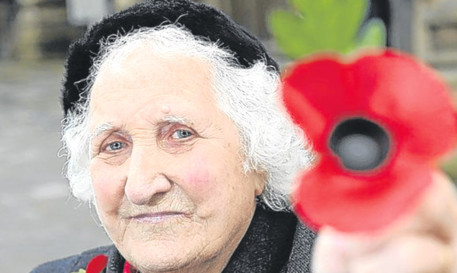
Tougher regulation is needed to stop charities bombarding people with demands for money, campaigners and MPs have said following the tragic death of poppy seller Olive Cooke.
Mrs Cooke, 92, was found dead in Avon Gorge after “losing faith” in people, her family said.
They said she had been getting harassing phone calls and up to 260 letters a month from charities pestering her for cash.
Charities have admitted sending begging letters to the kindly grandmother and her name was on a list of donors maintained by data firms and sold on to charities, it has emerged.
The charities have insisted that they have adhered to the highest ethical standards.
But last night David Hickson of the Fair Telecoms Campaign said stricter rules are needed to crack down on companies working for charities selling on personal details.
He said regulation by the Fundraising Standards Board must go “much further” to prevent vulnerable people being hounded by charities.
“The current regulation is just not working,” he said. “We believe that the FRSB, as with all other relevant regulators, must accept direct responsibility for the conduct of those they regulate, rather than simply endorsing a regime that has been shown to have failed.
“The government, which through its belief in the ‘Big Society’ sees private sector charities as the preferred alternative to state provision of essential services, must consider specific statutory regulation of their methods of gaining funds.”
Politicians and campaigners said it was appalling that frail great-grandmother Mrs Cooke had felt under siege.
“The fact charities like these are selling these people’s details for profit is grubby and absolutely appalling,” said Tory MP Sarah Wollaston. “The Information Commissioner needs to step in and stop this.
“When you give to a charity it is reasonable to expect that information isn’t being sold on. They have a duty to look after those who are donating.”
Another Conservative MP, Andrew Percy, said: “It’s shocking that people’s goodwill is being harvested in such a clinical and corporate manner particularly when they are often vulnerable and elderly.”
Mrs Cooke’s grandson believes her name was traded by charities because she was so generous. Their comments will add to growing concerns about the way charities in the UK are being run.
A Sunday Post investigation has previously revealed a 26% rise in charity chiefs paid more than £60,000 as a result of an intensifying ‘arms race’ for donations. Among the highest-paid is Stuart Earley, the chief executive of animal welfare charity the Scottish SPCA.
His basic wage has gone up from £160,000 to £185,000 higher than the annual salary of First Minister Nicola Sturgeon, who is on £135,000, and the £142,000 earned by Prime Minister David Cameron. Campaigner David Craig blasted: “The charity industry is completely out of control.”

Enjoy the convenience of having The Sunday Post delivered as a digital ePaper straight to your smartphone, tablet or computer.
Subscribe for only £5.49 a month and enjoy all the benefits of the printed paper as a digital replica.
Subscribe